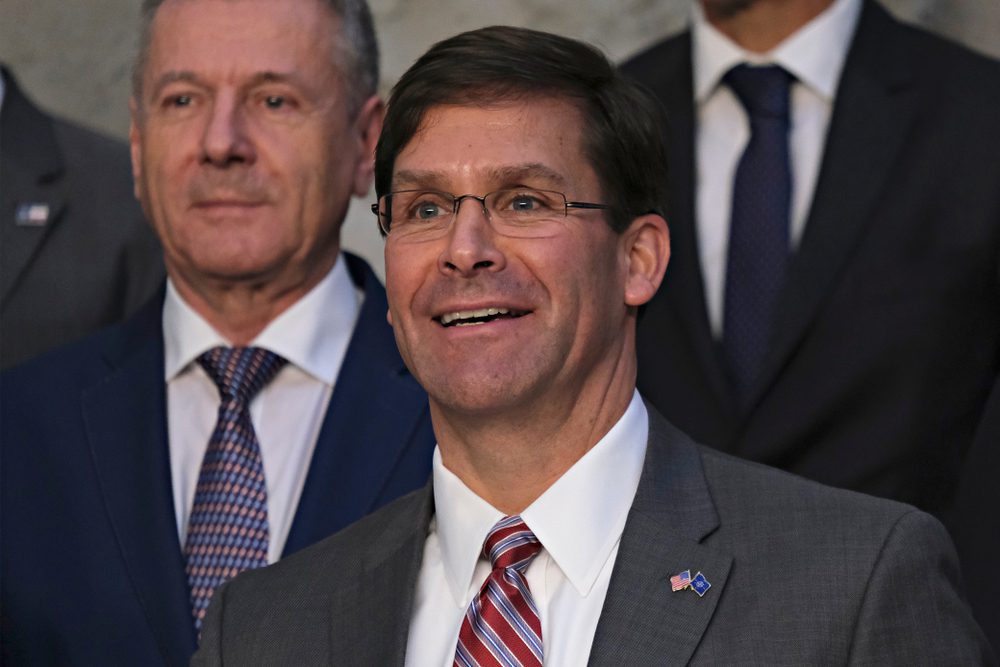Esper’s Lame Attempt to Save Money Off the Backs of Troops and Families

To deal with what he believes will be either a flat or declining defense budget, Secretary of Defense Mark Esper this year initiated a cost-cutting review of what he calls the Department of Defense’s “fourth estate.”
These consist of the defense-wide agencies and activities that are not part of one of the three military departments. They include the Defense Health Agency (DHA), the Missile Defense Agency (MDA), the Defense Advanced Research Project Agency (DARPA), the Defense Logistics Agency (DLA), and the Special Operations Command (SOCOM).
These agencies currently account for about $100 billion out of a defense budget of $740 billion, and the secretary asked his staff to identify possible areas of savings there over the next five years. In February, Esper announced that the first iteration had netted about $5.7 billion in savings and then launched a second review. Since DHA accounts for about one-third of the total budget of the fourth estate, it was not surprising that in the second review Esper’s staff targeted $2.2 billion, to come directly from military health care.
However, when Politico made that recommendation public on August 16,, there was pushback over the next two days. It came first from Esper himself, then President Trump, and then finally, the Democratic nominee for the White House, Vice President Joe Biden. Esper even claimed that the story was inaccurate. The president tweeted that the proposal by Pentagon officials had been firmly and totally rejected by him. Biden argued that gutting the military healthcare system, particularly during a global epidemic, is unacceptable.
While the Pentagon’s managers should always be looking for ways to spend taxpayers money more efficiently and effectively, proposing cuts to the military health care system, which currently cares for about 10 million people in the midst of a pandemic that has affected active duty personnel, retirees, and their families, does not make sense either morally, practically, or politically. Despite Esper’s denials, Politico reported that he and his deputies believed that America’s private health system could pick up the slack. Really? Have they not noticed that the civilian health care system is already overwhelmed?
Looking at the specifics of the proposal should raise even more concerns. During the Trump administration the Pentagon has already made significant cuts to the Defense Health System. For example, even before the review, it announced that it would be cutting the active duty medical corps by 20 percent or 17,000 people over the next five years.
Moreover, DHA is already one of the most efficient and effective Pentagon organizations. It has already saved the Pentagon and the country substantial amounts of money and improved the quality of health care available to military personnel and family members since its creation in 2013. It has done this by reducing such functions as administration, IT, logistics and teaching that existed in tripartite across the three service medical commands.
And even with these additional responsibilities the DHA budget has remained flat in nominal dollars at about $35 billion. It did this in spite of the fact that, as a result of legislation passed in 2016, Congress placed DHA in charge of all military hospitals worldwide, as well as the operations run by the service medical commands.
Not surprisingly, the military services have tried to reverse and stop this transfer, which for the hospitals and clinics in CONUS, was completed in October 2019 and for the overseas bases is expected to be done by October 2021. While the COVID-19 pandemic has delayed the transfer, OSD remains committed to it.
This is not the first time that the Pentagon’s Cost Assessment and Program Evaluation (CAPE) office, which takes the lead in helping the Secretary of Defense on cutting the budget, has targeted the DHA. Previously it tried to close the Uniform Services University of Health Service, which prepares women and men for the military’s medical corps and the Murtha Cancer Center at Walter Reed.
If Secretary Esper and the Trump administration really want to cut defense spending there are several other areas they should look. Do we really need to modernize all three legs of the nuclear triad at a cost of $1.7 trillion? As former Secretary of Defense William Perry and his colleague Tom Collina have pointed out, we can save at least $10 billion a year and still provide credible deterrence by reducing our deployed nuclear weapons to 1,000 from 1,550 and adopting a no first use policy.
Do we really need to continue to use the Overseas Contingency Budget (OCO) as a war slush fund, even as we begin to reduce our forces in Afghanistan and the region? Do we really need to build three more of the next generation Ford Class super aircraft carriers at a cost of at least $15 billion each? This is not something that the late Senator John McCain and Esper’s predecessor, Patrick Shanahan thought made sense.
Fortunately, some officials in the Pentagon, by leaking to Politico, made Americans and the president aware of the misguided attempt to save money off the backs of military health before it was too late.
Dr. Lawrence J. Korb is a senior fellow at the Center for American Progress, and served as assistant secretary of defense from 1981 through 1985.